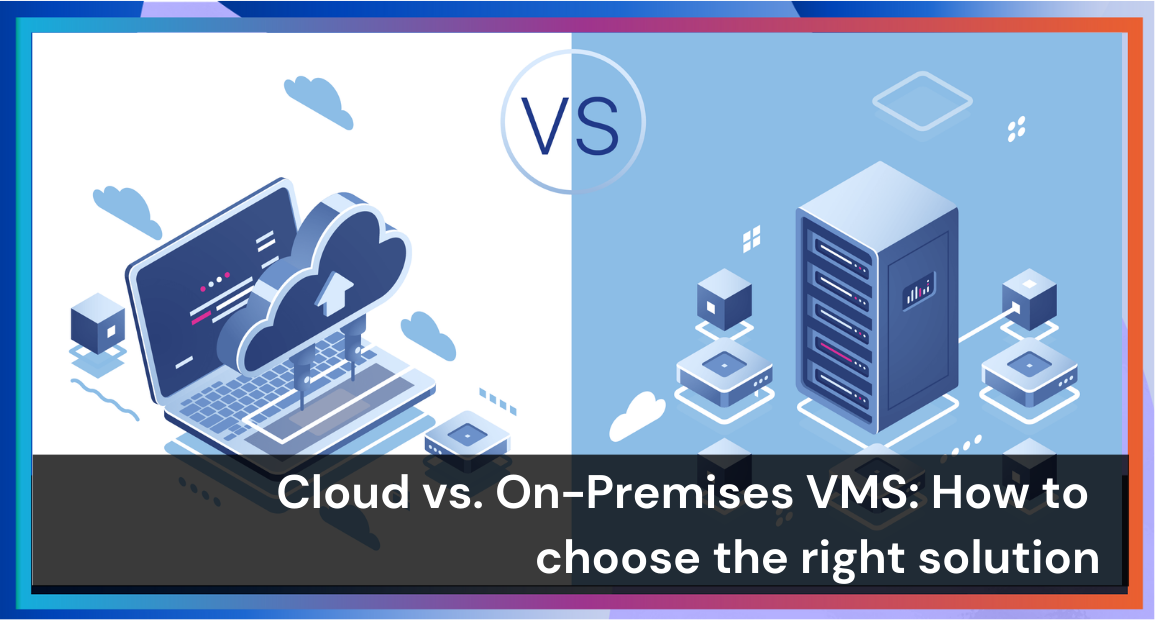Cloud vs On-Premises Vendor Management System: How to Choose the Right Solution
Posted On: Nov 09, 2023
Amid this tech-driven revolution, when you find yourself at the crossroads of choosing the perfect software or solution for your vendor management needs, a pivotal decision looms large: should you go for the traditional on-premises setup or embrace the flexibility of a cloud-based approach? Each path offers its unique blend of advantages and drawbacks, and navigating this choice is nothing short of a make-or-break moment for your organization's future.
What is an On-Premises Vendor Management System?
An on-premises vendor management system means that the software is set up and stored on a company's own premises. This includes their servers and hardware, which are used to manage the software and data. With this system, the company has direct control and ownership over everything. They buy software licenses, install it on their own computers, and keep the hardware running. This usually requires an in-house IT team or external IT support to handle tasks like updates, backups, security, and fixing any technical problems.

What is a Cloud-based Vendor Management System?
A cloud-based vendor management system is a kind of software that runs on servers located elsewhere and can be accessed through the internet. Instead of being on your own computers, the software and data are stored and managed by an outside company in the cloud. With this system, you can use the software and access vendor data from anywhere with an internet connection. You usually pay a regular fee to use the software, and it's like a "pay as you go" setup. Cloud-based systems come with various useful features and advantages.
What are the Pros and Cons of a cloud and on-premises Vendor Management System?
Let's explore the strengths and weaknesses that should be on your radar when you're faced with the choice between a cloud-based or on-premises Vendor Management System.
1. Cost Considerations
Cloud: Cloud-based VMS solutions often involve a subscription model, spreading the cost over time. You typically pay for what you use, making it a more budget-friendly option for many businesses. There's no need for substantial upfront hardware or infrastructure investments.
On-Premises: On-premises solutions usually require a significant initial investment in hardware, software, and IT resources. While this may lead to higher upfront costs, it could be more cost-effective over the long term for large enterprises.
2. Scalability
Cloud: Cloud-based VMS solutions are highly scalable, making it easy to adjust your usage as your needs change. You can effortlessly add or reduce licenses as your vendor management requirements fluctuate.
On-Premises: While on-premises VMS does not stop you from scalling, it can prove to be more complex and costly. You may need to invest on additional hardware and software licenses as well when expanding, which may involve downtime and resource allocation.
3. Maintenance and Updates
Cloud: With a cloud-based VMS, the user takes care of system maintenance and updates. This ensures your system is always up-to-date and secure, saving your IT department valuable time and resources.
On-Premises: Maintaining and updating an on-premises VMS is your responsibility, which can be a double-edged sword. While it provides more control, it also requires significant IT expertise, time, and effort.
4. Security
Cloud: Cloud VMS providers invest heavily in security measures to protect your data. They employ the latest security protocols and technologies to safeguard your vendor management system from threats.
On-Premises: With on-premises solutions, security is primarily in your hands. You have direct control over your infrastructure's security, but it's your responsibility to stay on top of updates and potential vulnerabilities.
5. Accessibility and Remote Work
Cloud: Cloud VMS solutions are accessible from anywhere with an internet connection, making them ideal for remote work and collaboration. This flexibility can be a game-changer in today's business landscape.
On-Premises: On-premises solutions may require additional configurations for remote access, which can be less convenient for remote work and might pose security risks if not properly managed.
6. Compliance and Data Privacy
Cloud: Many cloud providers are compliant with various data privacy regulations and offer features to help you meet compliance requirements. However, it's crucial to thoroughly vet your cloud provider's compliance standards.
On-Premises: On-premises solutions offer more direct control over data, which can be advantageous for certain industries with strict compliance requirements. You have the ability to tailor your security measures to meet specific regulatory needs.
7. Disaster Recovery and Redundancy
Cloud: Cloud-based VMS providers often have robust disaster recovery and redundancy solutions in place, minimizing downtime and data loss in the event of a catastrophe.
On-Premises: Implementing a comprehensive disaster recovery plan and redundancy can be more challenging and costly for on-premises systems.
How would you choose between Cloud vs On-Premises Vendor Management System:
While there is no absolute answer to this question, most of it depends upon a few key factors including the nature of your business, investment capabilities and perhaps also extreme data sensitivity. Large business in BFI (Banking, Finance and Insurance) usually chooses an on-premises solution because during the course of the last many years they have been investing in infrastructure and team to support on-premises data storage. Most of the new age companies choose cloud-based solutions as it provides cost efficiency and flexibility.
How does Partner Portal simplify the Vendor Management System?
Partner Portal, a cloud-based vendor management system catering to businesses of all sizes, offers a streamlined way to collaborate with vendors, increase efficiency, and save costs. IT provide your businesswith the ability to scale at pace, accessibility, and savings, It guides you through deployment, migration, and ongoing support challenges.
Choosing between a cloud-based or on-premises Vendor Management System hinges on your organization's unique needs. Factors like budget, scalability, IT capabilities, and security concerns should be carefully weighed. Make sure your decision aligns with your long-term goals and business strategy. Regardless of your choice, effective vendor management is vital in modern business operations, and the right VMS can significantly enhance your efficiency and competitiveness.